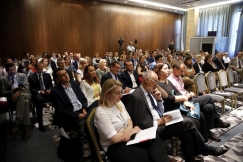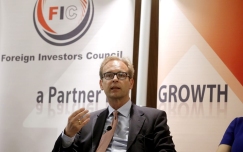The Foreign Investors Council (FIC) held its second ”Dialogue for Change” dedicated to the tax regulation and implementation, with Tax Administration Director Dragana Marković and EU Commission representative Reinhard Biebel as special speakers.
The discussion was focused on concrete tax policy measures which can trigger economic growth and which are fundamentally linked to predictability, modernization and consistent application of tax regulation.
In the introductory speech, FIC Vice President Dimitrije Knjeginjić conveyed that the goal of this event is to strengthen and rise to the higher level dialogue with Government and other important stakeholders. Talking about tax regulation and implementation, he pointed out that taxes are the number one topic for the business, which substantially affects the perception of Serbia as an investment destination.
“Every company takes into consideration the quality of tax regulation when deciding where to invest, on Serbian or some other market. This is why taxes are the topic of all topics. We at FIC do not deal with tax rates, but with tax regulation and their implementation and our message is simple: Serbia needs clear rules which equally applied to all, in order to attract more investments” said FIC Vice President.
He concluded that the ultimate goal is to leave behind the time of abrupt revision of tax rules and ways they are applied.
The panel discussion that followed featured: Director of Tax Administration of Republic of Serbia Dragana Marković, European Commission DG TAXUD Deputy Head of Unit Reinhard Biebel, FIC Board member Ivan Rakić, FIC Taxation Committee President Dragan Draca and FIC Anti-Illicit Trade Committee President Goran Pekez.
The event resulted with the joint conclusion that the FIC and the Government need to deepen their cooperation through timely expert dialogue in which the Government will convey its plans and share drafts of new legislation, and the private sector will say whether these solutions are feasible in the given timeframe and how they will affect business operations and, ultimately, the country’s GDP.


